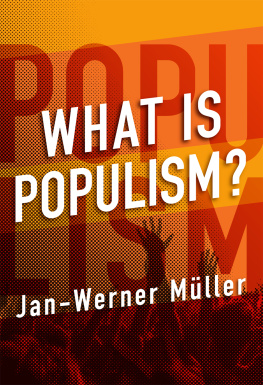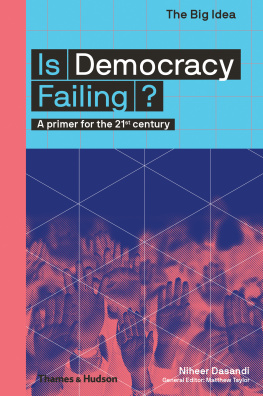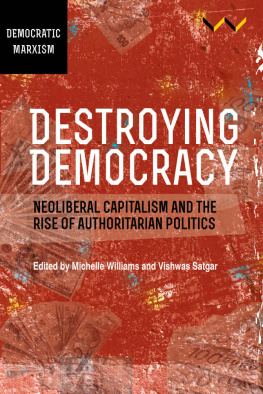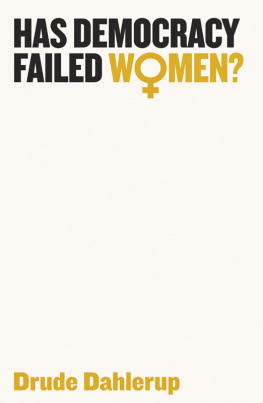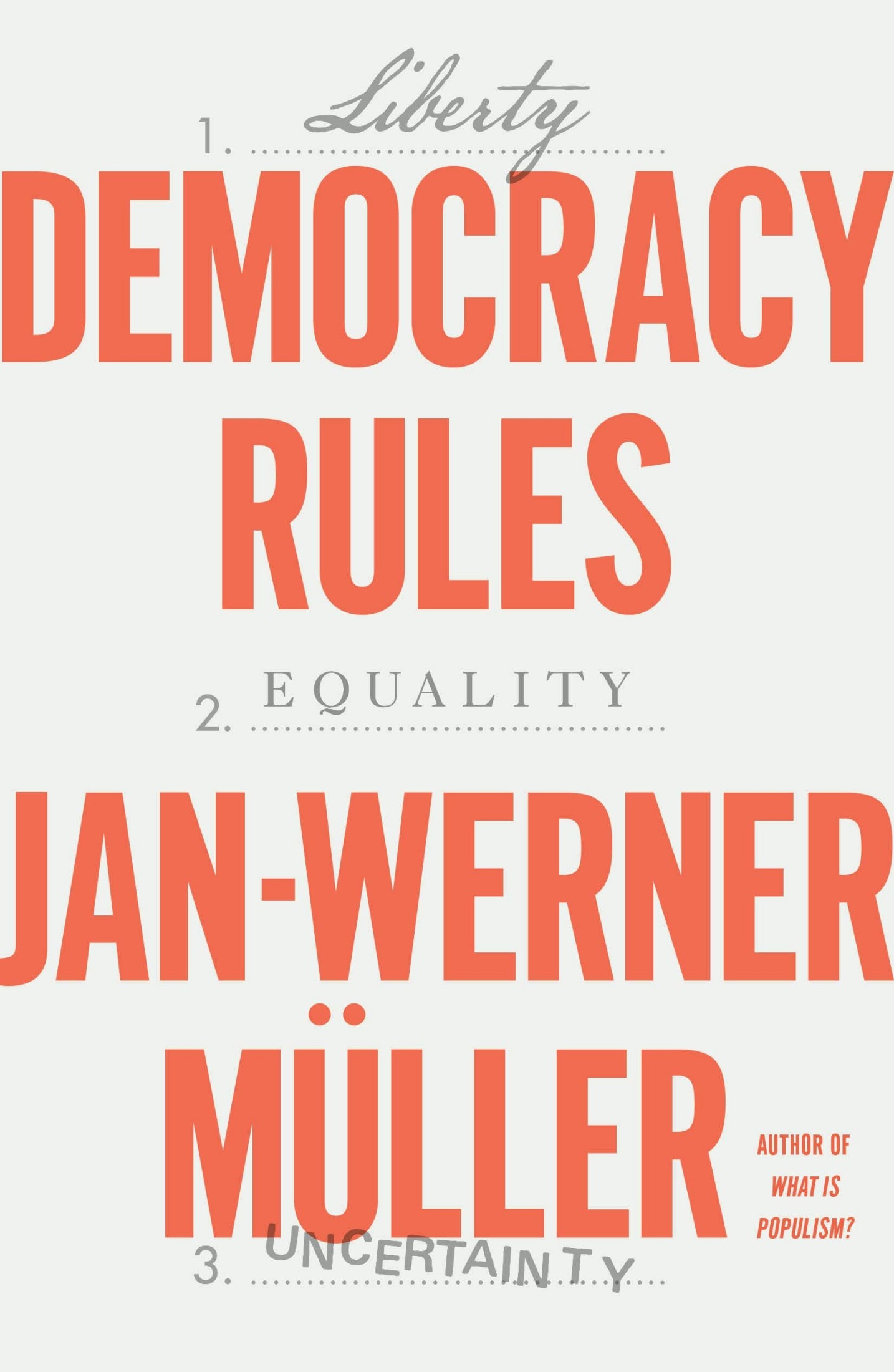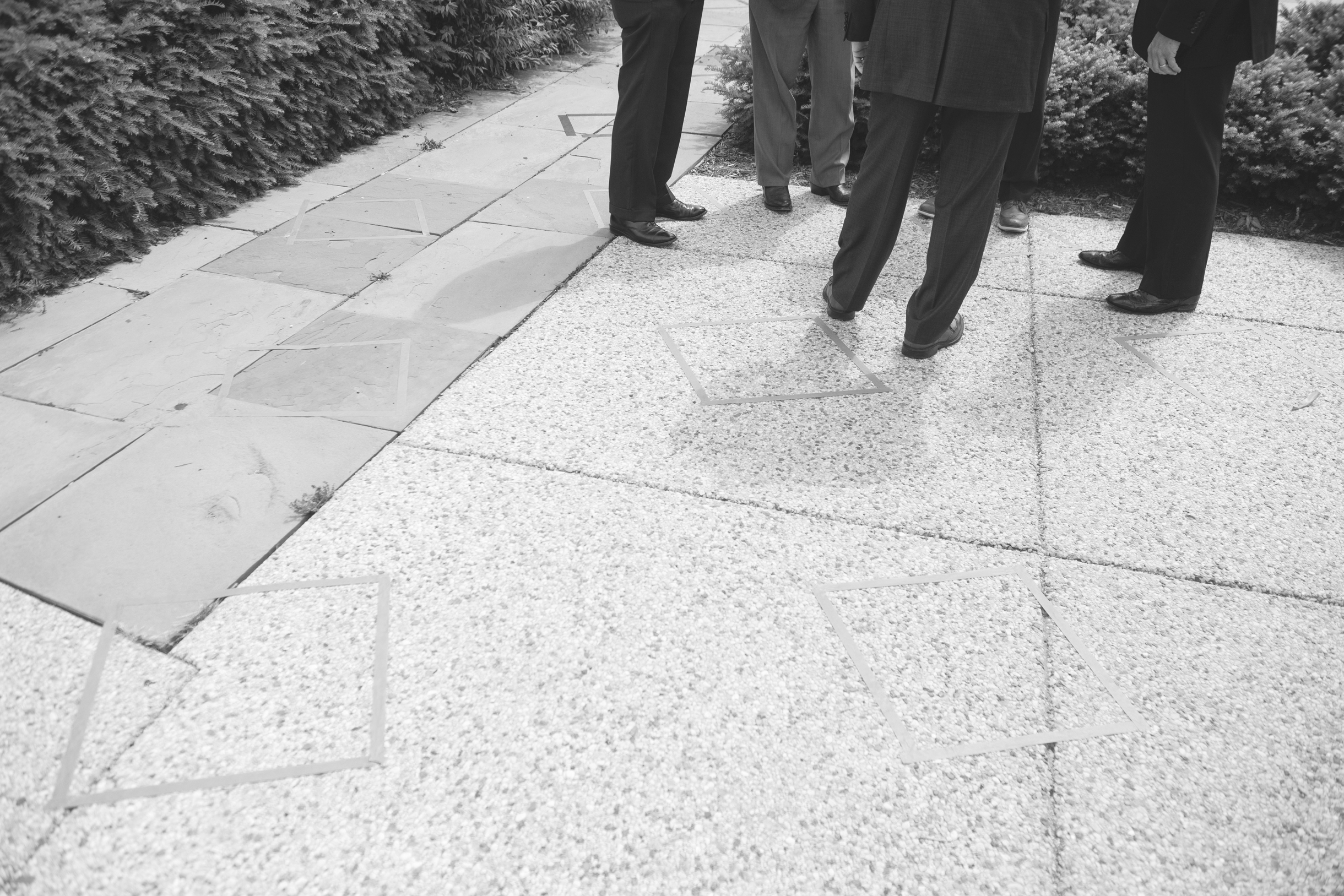
House Republicans stand together alongside social distancing boxes prior to a press conference on Capitol Hill. (Saul Loeb / AFP)
The author and publisher have provided this e-book to you for your personal use only. You may not make this e-book publicly available in any way. Copyright infringement is against the law. If you believe the copy of this e-book you are reading infringes on the authors copyright, please notify the publisher at: us.macmillanusa.com/piracy.
Democracy? It is a dream to suppose that we already know what it is, whether out of satisfaction with our present state or to attack its misery. It is simply a play of open possibilities, inaugurated in a past still close to us, and we have barely begun to explore it.
CLAUDE LEFORT
Everybody thinks they know that democracy is in crisis, but how many of us are certain what democracy actually is? The reasons for a pervasive sense of crisis seem plain: a steadily rising number of authoritarian regimes; increasing levels of dissatisfaction with politics within democracies; and, beyond abstract numbers, the double trauma of 2016, with Brexit and the election of a reality TV star as president of the worlds oldest and (still) most powerful democracy.
Does the elevation of an evidently unfit candidate to the highest office in the land automatically prove that democracy is in crisis? Or was conclusive proof only supplied by the fact that this man-child, in the very last days of his presidential term, incited followers to storm the legislature? Or did American democracy on that occasion demonstrate its resilience, ultimately absorbing the shock to the political system? Not every shock signals crisis. In the original ancient Greek meaning, krisis denotes a moment of stark choice: a patient would either die or recover, a defendant would be judged guilty or innocent (in fact, judgment was the other meaning of the term). If so, was Trumps election perhaps a moment when it was voters who were judgedas unfit for democracy? As we now know, a president tweeting falsehoods or spouting them in live press conferences can certainly turn into a matter of life and deathif members of his audience take him seriously and literally during a pandemic. But did lying about Lysol undermine democracy? Does the decision to leave a supranational organization, following a referendum initiated by one of the worlds oldest political parties, namely the Tories in the United Kingdom, constitute a fatal blow to democracy as such? There are plenty of outcomes in democratic polities one might find abhorrent, but to presume more or less casually that theyll kill the system is to engage in what Saul Bellow once derided as crisis chatter. Just what are plausible criteria for declaring a life-and-death moment? And is there a way for such criteria not to look immediately partisan?
That question cannot be answered without a proper understanding of democracy to begin with. True, we think we know it when we see it. But many leaders determined to subvert democracy have become very adept at making us believe that theres something there long after it is in fact gone. What is truly essential for democracy? Is it one thing only, or perhaps more than one thing? Is it elections, or a set of basic rights such as free speech, or a more elusive matter of collective attitudes, for instance, citizens being disposed to treat one another in a civil, respectful manner?
We wont get very far in answering these questions without first returning to basics. Its the move Machiavelli recommended when he wrote that addressing a crisis requires nothing less than a riduzione verso il principio, a return to first principles. This book seeks to offer such a route. Inevitably, we walk with our backs to the future, but having some sense of where were coming from and what the path so far has looked like can help in figuring out whether we have really lost our way (which is not to say theres necessarily only one way).
Its a mistake to assume that all thinking about democracy today needs to be fashioned as a response to the new authoritarians. Yet we also cant pretend that nothing happened. Thus, the first chapter of this book will revisit the question Hillary Clinton posed in her instant memoir: What happened? And why is it still happening, after so many self-declared defenders of democracy have sounded the alarm bells?
There have been two convenient but ultimately very misleading responses. One is to blame the people themselves. This has been true of liberals in particular, who prioritize individual rights, are more or less content with capitalism, and tend to value diversity as such, but who also labor under an inherited notion that democracy is perennially in peril of deteriorating into a tyranny of the majority. They have taken what is often dubbed the global rise of right-wing populism as license to revive clichs from nineteenth-century mass psychologythe kinds of ideas one should not really utter in polite company, even if one is convinced that civics-education pieties hardly ever match political realities: the masses bring all kinds of disasters on themselves; ordinary folksill-informed and, even if well-informed, plainly irrationalare always ready to be misled by demagogues. The obvious lesson is to re-empower what are gingerly called gatekeeperswhich is often really just to say traditional elites. Those despairing of the masses also point to surveys supposedly proving that citizens across the globe are more and more inclined to back strong leaders, or even military rule.
Whats wrong with this picture? To begin with, most surveys are ambiguous at best, and in any case surveys have hardly ever predicted either the life or the death of democracy; they certainly do not demonstrate conclusively that the people are thoroughly disenchanted with ideals of self-rule. Moreover, the supporters of those elites dont think of themselves as getting rid of democracy when they vote for conservative and center-right parties.
A quick glance at history (and, of course, one shouldnt glance just quickly) would suggest that there are fewpossibly noinstances of democratic majorities clearly deciding to be done with democracy. Fascist thugs marched on Rome, but Mussolini didnt: he arrived by sleeper car from Milan, because liberal elites and, not least, the king had decided that the future Duce should have a try at cleaning up the mess of parliamentary politics. Obviously, his Fascist Party had highly committed supporters, as did the National Socialists in Germany. But there as well, the crucial decision to empower Hitler was made by parts of what might as well be called the conservative establishment of the day. Those searching for one-line lessons from history should take note: apparently, it is not the people who decide to be done with democracy; it is elites.
Of course, this notion would seem to play right into the hands of those who assign blame to the powerful for the political upheavals of our time. Indeed, there is much to criticize in what can be understood as a kind of secession of the most privileged from particular polities, but it does not do justice to the complexity of our moment simply to claim that its problems are all caused just by the rich and powerful being bad, corrupt, or, to coin a phrase, crooked characters, whether that claim is made by the left or the right. The powerful do what they do because they have the power to do it, and the power was given to them ultimately through the institutions of our democracies. We must reexamine the latter, as opposed to getting stuck with shaming particular figures (even if doing so is often justified, and also fun: think of the billionaire on American TV prompted to tears by the specter of somewhatin fact just


